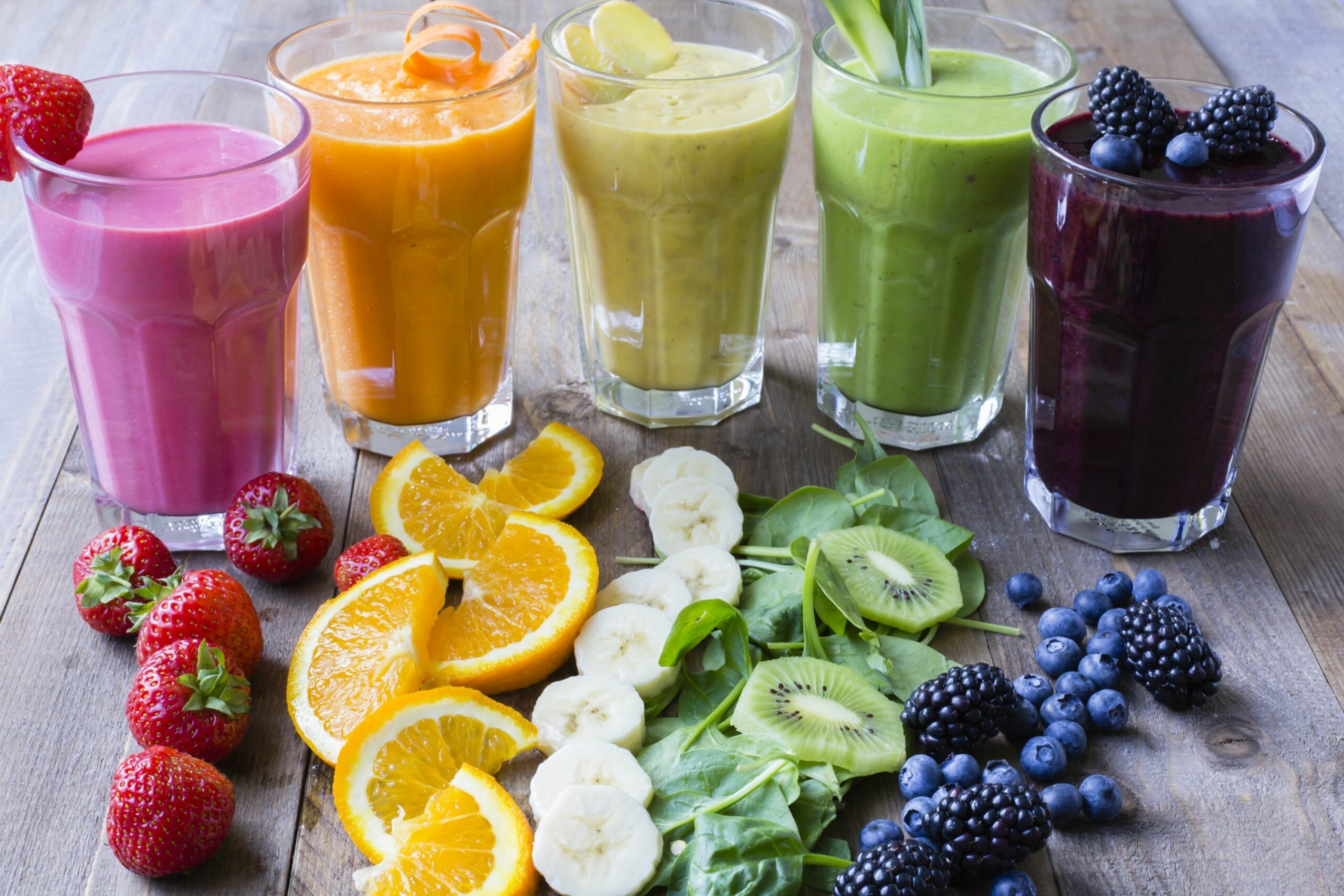Smoothies have gained immense popularity in recent years as a convenient and nutritious way to pack in fruits, vegetables, and other healthy ingredients. They offer a quick and easy way to obtain essential nutrients, fiber, and hydration in a single glass. However, like any food or beverage, the healthfulness of smoothies depends on their ingredients and how they are prepared. In this comprehensive guide, we will explore the potential benefits and drawbacks of smoothies, considerations for making healthier choices, and tips for incorporating them into a balanced diet.
Nutritional Benefits of Smoothies:
- Smoothies can be an excellent way to increase your intake of fruits, vegetables, and other nutrient-rich ingredients. Some potential benefits include:
- Nutrient Density: When prepared with a variety of fruits, vegetables, and other wholesome ingredients, smoothies can provide a concentrated source of vitamins, minerals, and antioxidants.
- Fiber Content: Including whole fruits and vegetables in smoothies can contribute to a higher fiber intake. Fiber aids digestion, promotes satiety, and supports healthy blood sugar control.
- Hydration: Smoothies can help meet your hydration needs, especially if you include hydrating ingredients like watermelon, cucumber, or coconut water.
- Convenience: Smoothies are quick and easy to prepare, making them a convenient option for busy individuals.
Considerations for Healthier Smoothies:
While smoothies can be a nutritious addition to your diet, it’s essential to consider a few factors to make them as healthy as possible:
- Balance Macros: Incorporate a balance of macronutrients in your smoothie, including protein, healthy fats, and carbohydrates. This helps promote satiety, stabilize blood sugar levels, and provide sustained energy.
- Limit Added Sugars: Be mindful of added sugars in your smoothies. Some commercial smoothies or homemade recipes may include excessive amounts of sweeteners, syrups, or sugary fruits. Opt for whole fruits or natural sweeteners like honey or dates instead.
- Include Protein: Adding a source of protein to your smoothie, such as Greek yogurt, nut butter, or protein powder, can enhance satiety and support muscle recovery and growth.
- Choose Healthy Fats: Incorporating sources of healthy fats, such as avocado, chia seeds, or nut butter, can provide additional nutrients and help increase the absorption of fat-soluble vitamins.
- Watch Portion Sizes: While smoothies can be nutrient-dense, they can also be calorie-dense. Pay attention to portion sizes, especially if you’re trying to manage your weight.
Potential Drawbacks of Smoothies:
Despite their potential benefits, smoothies can have drawbacks depending on their ingredients and preparation methods:
- Caloric Intake: Some smoothies, particularly those purchased at cafes or restaurants, can be high in calories due to added sugars, sweeteners, or large portion sizes. Be mindful of the calorie content, especially if you’re trying to lose weight or maintain a specific calorie intake.
- Liquid Calories: Drinking calories from smoothies may not provide the same level of satiety as consuming whole foods. It’s important to be aware of your overall calorie intake and consider the balance of liquid and solid foods in your diet.
- Nutrient Dilution: Depending on the ingredients and preparation methods, smoothies can dilute the nutrients present in whole fruits and vegetables. For example, juicing fruits and vegetables removes the fiber, while blending them into a smoothie retains the fiber content.
Making Healthier Smoothie Choices:
To maximize the nutritional value of your smoothies, consider the following tips:
- Use Whole Foods: Opt for whole fruits and vegetables instead of juices or concentrates to retain the natural fiber and nutrients.
- Include Greens: Adding leafy greens like spinach or kale to your smoothies can boost the nutrient content without significantly altering the taste.
- Choose Low-Sugar Fruits: Select fruits that are lower in sugar, such as berries or citrus fruits, to keep the overall sugar content in check.
- Add Protein: Include a source of protein, such as Greek yogurt, silken tofu, or protein powder, to increase the satiety and nutritional value of your smoothie.
- Experiment with Healthy Fats: Incorporate healthy fats like avocado, chia seeds, or nut butter for added creaminess, flavor, and nutrient density.
- Control Portion Sizes: Enjoy smoothies as part of a balanced meal or snack and be mindful of portion sizes to avoid excessive calorie intake.
Incorporating Smoothies into a Balanced Diet:
Smoothies can be a healthy addition to your diet when consumed in moderation and as part of a balanced eating plan. Consider the following tips for incorporating smoothies effectively:
- Meal Replacement: Use smoothies as a meal replacement option when you’re short on time or on-the-go. Ensure that your smoothie includes a balance of macronutrients and provides adequate calories and nutrients to sustain you until your next meal.
- Snack Option: Enjoy a smaller portion of smoothie as a snack, accompanied by a source of protein or healthy fats to promote satiety.
- Variety: Rotate your smoothie ingredients to ensure you’re obtaining a wide range of nutrients from different fruits, vegetables, and other add-ins.
- Listen to Your Body: Pay attention to how your body responds to smoothies. Some individuals may experience digestive discomfort or bloating from consuming large amounts of fiber-rich smoothies. Adjust the ingredients and portion sizes to suit your needs and digestive tolerance.
Conclusion:
- Smoothies can be a nutritious and convenient way to increase your intake of fruits, vegetables, and other essential nutrients. By choosing whole foods, balancing macronutrients, and being mindful of added sugars and portion sizes, you can create healthier smoothies that support your overall health and well-being. However, it’s important to remember that smoothies should not replace a varied and balanced diet that includes a variety of whole foods. Consult with a healthcare professional or registered dietitian if you have specific dietary concerns or health conditions.
Latest posts by Ieva Kubiliute (see all)
- Unwrap the Magic: My Tasty Adventure with Just CBD Gummies - August 8, 2024
- Antibiotics for Meningitis: Everything You Need to Know - June 11, 2024
- CBD OIL By Swdistro-The Ultimate CBD Oil A Comprehensive Review - March 29, 2024

